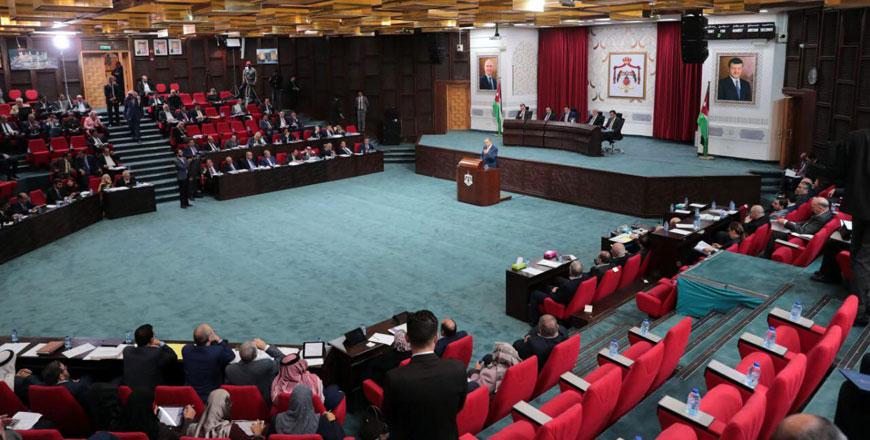You are here
House passes income tax bill with amended taxability threshold
By Raed Omari , Petra - Nov 18,2018 - Last updated at Nov 21,2018

Deputies vote on the 2018 amendments to the Income Tax Law on Sunday (Photo by Hasan Tamimi)
AMMAN — The Lower House on Sunday passed the controversial 2018 Income Tax Law under parliamentary-committee amendments raising the income thresholds for taxability from the ones set by the government.
Under the House's amendments, the income threshold was raised from an annual JD18,000 (to go down to 17,000 in 2020) as in the government's version of the law to JD20,000 for families and from JD9,000 to JD10,000 for individuals.
Under the existing law, the figure is JD24,000 for households with JD4,000 in exemptions on VAT medical and educational receipts and invoices, and JD12,000 for individuals.
The MPs also raised the VAT exemption in the new law to reach JD2,000 instead of JD1,000 in the government’s proposed bill for families, and to JD1,000 for individuals, provided that such expenses are covered by bills for health, education, loan interests or murabaha (an Islamic finance and investment instrument).
As per MPs’ amendments, income tax on banks will remain at 35 per cent as in the original law and not 37 per cent as proposed by the government.
The House also went back on its decision to grant full exemption to agricultural inputs and outputs from income tax, endorsing instead the government’s amendments under which exemptions are granted to individual farmers and agricultural companies whose annual income is less than JD50,000 and JD1 million respectively.
Addressing MPs ahead of their vote on the law as a whole, Prime Minister Omar Razzaz said that the new bill needs to be endorsed to avoid paying more interest on the Kingdom’s debts.
He added that the government’s focus during the coming few years will be placed on curbing the budget deficit to be able to reschedule Jordan’s loans, the Jordan News Agency, Petra, reported.
The premier added that the taxes Jordanians pay constitute 26 per cent of GDP, stressing that the income tax does not affect low- and middle-income households, but only the top 12 per cent earners, Petra said.
Razzaz also stressed that “there is no possibility of prices going up when the new income tax law goes into effect because the bill targets net profits”.
Related Articles
AMMAN — The Lower House on Tuesday began its deliberations over the 2018 amendments to the Income Tax Law, turning down a request by some MP
AMMAN — The Senate on Monday passed the 2018 amendments to the Income Tax Law as referred from the Lower House, the Jordan News Agency, Petr
AMMAN — The recent income tax bill endorsed by the Lower House is expected to result in a decline in the volume of forecasted revenues, econ

















